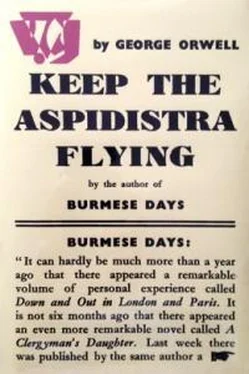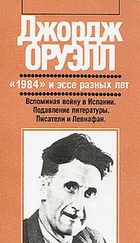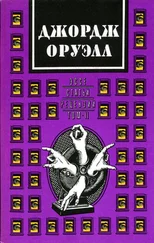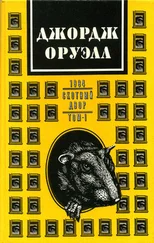And as for Aunt Angela and Uncle Walter—oh dear, oh dear! What a couple! It made Gordon feel ten years older every time he looked at them.
Uncle Walter, for example. Uncle Walter was very depressing. He was sixty–seven, and what with his various 'agencies' and the dwindling remnants of his patrimony his income might have been nearly three pounds a week. He had a tiny little cabin of an office off Cursitor Street, and he lived in a very cheap boarding– house in Holland Park. That was quite according to precedent; all the Comstock men drifted naturally into boarding–houses. When you looked at poor old uncle, with his large tremulous belly, his bronchitic voice, his broad, pale, timidly pompous face, rather like Sargent' s portrait of Henry James, his entirely hairless head, his pale, pouchy eyes, and his ever–drooping moustache, to which he tried vainly to give an upward twirl—when you looked at him, you found it totally impossible to believe that he had ever been young. Was it conceivable that such a being had ever felt life tingle in his veins? Had he ever climbed a tree, taken a header off a springboard, or been in love? Had he ever had a brain in working order? Even back in the early nineties, when he was arithmetically young, had he ever made any kind of stab at life? A few furtive half–hearted frolics, perhaps. A few whiskies in dull bars, a visit or two to the Empire promenade, a little whoring on the Q. T.; the sort of dingy, drabby fornications that you can imagine happening between Egyptian mummies after the museum is closed for the night. And after that the long, long quiet years of business failure, loneliness, and stagnation in godless boarding– houses.
And yet uncle in his old age was probably not unhappy. He had one hobby of never–failing interest, and that was his diseases. He suffered, by his own account, from every disease in the medical dictionary, and was never weary of talking about them. Indeed, it seemed to Gordon that none of the people in his uncle's boarding– house—he had been there occasionally—ever did talk about anything except their diseases. All over the darkish drawing–room, ageing, discoloured people sat about in couples, discussing symptoms. Their conversation was like the dripping of stalactite to stalagmite. Drip, drip. 'How is your lumbago?' says stalactite to stalagmite. 'I find my Kruschen Salts are doing me good,' says stalagmite to stalactite. Drip, drip, drip.
And then there was Aunt Angela, aged sixty–nine. Gordon tried not even to think of Aunt Angela oftener than he could help.
Poor, dear, good, kind, depressing Aunt Angela!
Poor, shrivelled, parchment–yellow, skin–and–bone Aunt Angela! There in her miserable little semi–detached house in Highgate— Briarbrae, its name was—there in her palace in the northern mountains, there dwelleth she, Angela the Ever–virgin, of whom no man either living or among the shades can say truly that upon her lips he hath pressed the dear caresses of a lover. All alone she dwelleth, and all day long she fareth to and fro, and in her hand is the feather–mop fashioned from the tail feathers of the contumacious turkey, and with it she polisheth the dark–leaved aspidistras and flicketh the hated dust from the resplendent never– to–be–used Crown Derby china tea–service. And ever and anon she comforteth her dear heart with draughts of the dark brown tea, both Flowery Orange and Pekoe Points, which the small–bearded sons of Coromandel have ferried to her across the wine–dark sea. Poor, dear, good, kind, but on the whole unloveable Aunt Angela! Her annuity was ninety–eight pounds a year (thirty–eight bob a week, but she retained a middle–class habit of thinking of her income as a yearly and not weekly thing), and out of that, twelve and sixpence a week went on house rates. She would probably have starved occasionally if Julia had not smuggled her packets of cakes and bread and butter from the shop—always, of course, presented as 'Just a few little things that it seemed a pity to throw away', with the solemn pretence that Aunt Angela didn't really need them.
Yet she too had her pleasures, poor old aunty. She had become a great novel–reader in her old age, the public library being only ten minutes' walk from Briarbrae. During his lifetime, on some whim or other, Gran'pa Comstock had forbidden his daughters to read novels. Consequently, having only begun to read novels in 1902, Aunt Angela was always a couple of decades behind the current mode in fiction. But she plodded along in the rear, faint yet pursuing. In the nineteen–hundreds she was still reading Rhoda Broughton and Mrs Henry Wood. In the War years she discovered Hall Caine and Mrs Humphry Ward. In the nineteen–twenties she was reading Silas Hocking and H. Seton Merriman, and by the nineteen–thirties she had almost, but not quite, caught up with W. B. Maxwell and William J. Locke. Further she would never get. As for the post–War novelists, she had heard of them afar off, with their immorality and their blasphemies and their devastating 'cleverness'. But she would never live to read them. Walpole we know, and Hichens we read, but Hemingway, who are you?
Well, this was 1934, and that was what was left of the Comstock family. Uncle Walter, with his 'agencies' and his diseases. Aunt Angela, dusting the Crown Derby china tea–service in Briarbrae. Aunt Charlotte, still preserving a vague vegetable existence in the Mental Home. Julia, working a seventy–two–hour week and doing her 'sewing' at nights by the tiny gas–fire in her bedsitting–room. Gordon, nearly thirty, earning two quid a week in a fool's job, and struggling, as the sole demonstrable object of his existence, with a dreadful book that never got any further.
Possibly there were some other, more distantly related Comstocks, for Gran'pa Comstock had been one of a family of twelve. But if any survived they had grown rich and lost touch with their poor relations; for money is thicker than blood. As for Gordon's branch of the family, the combined income of the five of them, allowing for the lump sum that had been paid down when Aunt Charlotte entered the Mental Home, might have been six hundred a year. Their combined ages were two hundred and sixty–three years. None of them had ever been out of England, fought in a war, been in prison, ridden a horse, travelled in an aeroplane, got married, or given birth to a child. There seemed no reason why they should not continue in the same style until they died. Year in, year out, NOTHING EVER HAPPENED in the Comstock family.
Sharply the menacing wind sweeps over The bending poplars, newly bare.
As a matter of fact, though, there was not a breath of wind that afternoon. It was almost as mild as spring. Gordon repeated to himself the poem he had begun yesterday, in a cadenced whisper, simply for the pleasure of the sound of it. He was pleased with the poem at this moment. It was a good poem—or would be when it was finished, anyway. He had forgotten that last night it had almost made him sick.
The plane trees brooded motionless, dimmed by faint wreaths of mist. A tram boomed in the valley far below. Gordon walked up Malkin Hill, rustling instep–deep through the dry, drifted leaves. All down the pavement they were strewn, crinkly and golden, like the rustling flakes of some American breakfast cereal; as though the queen of Brobdingnag had upset her packet of Truweet Breakfast Crisps down the hillside.
Jolly, the windless winter days! Best time of all the year—or so Gordon thought at this moment. He was as happy as you can be when you haven't smoked all day and have only three–halfpence and a Joey in the world. This was Thursday, early–closing day and Gordon's afternoon off. He was going to the house of Paul Doring, the critic, who lived in Coleridge Grove and gave literary tea–parties.
Читать дальше








